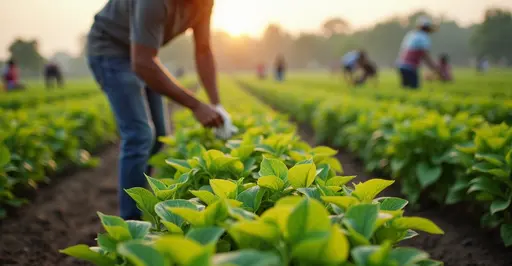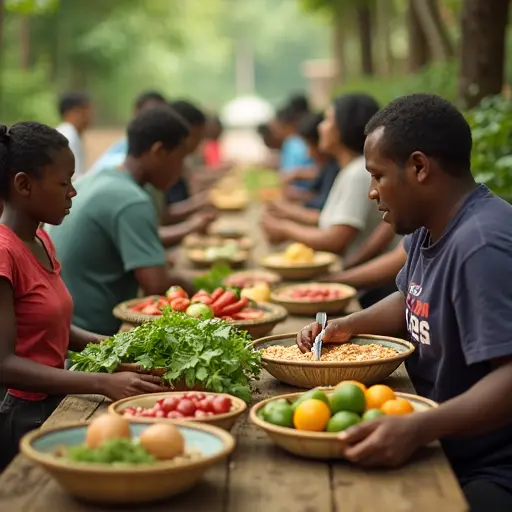Scientists develop CRISPR-edited drought-resistant crops that boost yields by 25% in dry conditions. New varieties help farmers combat climate change while reducing water usage by 30%.

Revolutionizing Agriculture with Climate-Resilient Crops
Scientists have unveiled groundbreaking biotech innovations to combat the growing threat of drought and heat stress in global agriculture. Using CRISPR gene-editing technology, researchers have developed new crop varieties that maintain high yields despite extreme water scarcity. These crops activate specialized drought-response genes that minimize water loss through leaf pores while enhancing root water absorption.
How the Technology Works
The new varieties feature modified DREB (Dehydration-Responsive Element-Binding) proteins that trigger protective mechanisms during drought conditions. This includes:
- Increased production of osmoprotectants like proline
- Enhanced carotenoid preservation
- Improved ROS-scavenging enzyme activity
- Stomatal closure optimization
Field tests show 25% higher survival rates in maize and wheat during extended dry periods compared to conventional varieties. The technology builds on 2025 biotech agriculture advancements that help crops thrive in unfavorable conditions.
Global Implementation
Major agricultural regions are adopting these innovations:
- Africa: Drought-resistant sorghum boosting food security
- Australia: Heat-tolerant wheat varieties
- California: Water-efficient tomatoes and almonds
- India: Flood-resistant rice hybrids
According to strong target="_blank" rel="noopener noreferrer">2025 biotech reports, these crops could reduce irrigation needs by 30% while maintaining 90-95% of standard yields under heat stress.
Environmental and Economic Impact
The innovations address critical climate challenges:
- Reduced water consumption in agriculture
- Lower risk of crop failure during droughts
- Decreased need for synthetic fertilizers
- Expansion of farming to marginal lands
Economic modeling predicts these crops could prevent $23 billion in annual climate-related agriculture losses by 2030. Research institutions like Rice University's RBL LLC and University of Queensland's Lucia Bio are accelerating commercialization through strategic partnerships.

 Nederlands
Nederlands English
English Français
Français Deutsch
Deutsch Español
Español Português
Português






